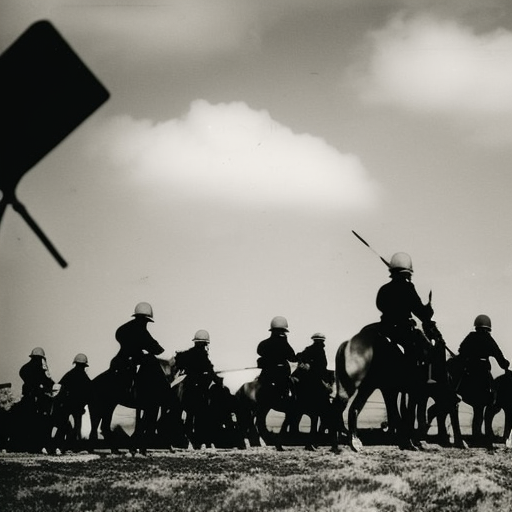Battle of Castricum: A Turning Point in the French-Dutch War
The Battle of Castricum, fought on October 6, 1799, was a significant event in the French-Dutch War. It took place near the town of Castricum in the Netherlands and marked a turning point in the conflict. The battle was fought between the French Republic and the Anglo-Russian forces, with the French emerging victorious.
The Context:
The French-Dutch War began in 1794 when the French Republic, led by Napoleon Bonaparte, invaded the Dutch Republic. The Dutch government, weakened by internal divisions, was unable to resist the French onslaught. As a result, the French quickly gained control over much of the Dutch territory.
The Anglo-Russian Intervention:
In 1799, the British and Russian governments decided to intervene in the conflict to support the Dutch against the French. Their goal was to restore the Dutch Republic and prevent the spread of French revolutionary ideals. A combined Anglo-Russian force was assembled under the command of the Duke of York.
The Battle:
The Battle of Castricum was part of the larger campaign to drive the French out of the Netherlands. The French army, commanded by General Brune, faced the Anglo-Russian forces led by the Duke of York. The battle took place in difficult terrain, with marshes and sand dunes limiting the mobility of both sides.
The initial phase of the battle saw the Anglo-Russian forces launching a series of attacks against the French positions. However, the French, well-entrenched and familiar with the terrain, were able to repel these attacks. The Duke of York’s forces suffered heavy casualties and were unable to make any significant progress.
The Turning Point:
As the battle progressed, the French launched a counterattack that caught the Anglo-Russian forces off guard. The French cavalry, supported by artillery, broke through the enemy lines and caused panic among the British and Russian troops. The Duke of York’s forces were forced to retreat, leaving the field to the victorious French.
The Aftermath:
The Battle of Castricum was a decisive victory for the French Republic. It demonstrated the effectiveness of their military tactics and the resilience of their troops. The defeat of the Anglo-Russian forces also weakened their position in the Netherlands and undermined their efforts to restore the Dutch Republic.
Following the battle, negotiations between the warring parties began, leading to the Convention of Alkmaar. Under this agreement, the Anglo-Russian forces agreed to withdraw from the Netherlands, effectively ending their intervention in the conflict. The French Republic consolidated its control over the Dutch territory and continued its expansionist policies.
Legacy:
The Battle of Castricum had a lasting impact on the French-Dutch War. It marked a turning point in the conflict, with the French Republic gaining the upper hand. The battle also highlighted the limitations of the Anglo-Russian intervention and their inability to achieve their objectives.
Furthermore, the battle demonstrated the effectiveness of the French military and their ability to adapt to challenging terrain. It showcased the leadership skills of General Brune and the bravery of the French troops. The victory at Castricum boosted French morale and further solidified their dominance in the region.
In conclusion, the Battle of Castricum was a significant event in the French-Dutch War. It was a turning point that demonstrated the strength of the French Republic and weakened the position of the Anglo-Russian forces. The battle’s outcome had lasting implications for the conflict and highlighted the military prowess of the French.












